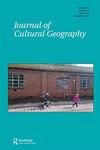负面遗产:美国闹鬼历史之旅的物质文化政治
IF 0.9
Q3 GEOGRAPHY
引用次数: 6
摘要
本文评估了闹鬼历史之旅在美国城市空间中的定义特征和文化意义。闹鬼历史是一种独特的文化形式,在美国、加拿大、英国和其他地方日益突出。闹鬼历史利用“黑暗”历史和鬼魂来吸引公众,但这样做是为了吸引当地历史和记忆中尚未解决和令人不安的元素。从业者创造性地参与有问题的历史,否则这些历史可能会被遗忘或压制,尤其是关注他们的物质民俗痕迹。这篇文章借鉴了美国几个城市的参与性和分析性研究,特别是圣路易斯、纽约和萨凡纳,从对闹鬼历史的定义模式和解释惯例的描述开始,这些模式和解释习惯来自主流旅游业,其他则来自更积极的公共历史,分析其对令人难忘的过去“残余者”的关注,我认为,这构成了一个实验记忆项目的未被承认的叙事和认识论核心,其主要来源是“负面遗产”领域。本文章由计算机程序翻译,如有差异,请以英文原文为准。
Negative heritage: the material-cultural politics of the American haunted history tour
ABSTRACT This article assesses the defining features and cultural significance of the haunted history tour as it has come to be practiced in American urban spaces. A distinctive cultural form that has risen to prominence in the U.S., Canada, the U.K., and other places, haunted history taps into public fascinations with “dark” history and ghosts, but does so to engage unresolved and troubling elements of local history and memory. Practitioners engage creatively with problematic histories that otherwise might be forgotten or suppressed, attending especially to their material-folkloric traces. Drawing on participatory and analytical research in several U.S. cities, in particular St. Louis, New York, and Savannah, the article moves from a characterization of the defining modes and interpretative conventions of haunted history, which are drawn from mainstream tourism and others from more-activist public history, to an analysis of its preoccupation with haunting “remainders” of the past, which, I contend, form an unacknowledged narrative and epistemological core of an experimental memory project whose primary quarry is the domain of “negative heritage”.
求助全文
通过发布文献求助,成功后即可免费获取论文全文。
去求助
来源期刊

Journal of Cultural Geography
GEOGRAPHY-
CiteScore
1.70
自引率
22.20%
发文量
15
期刊介绍:
Since 1979 this lively journal has provided an international forum for scholarly research devoted to the spatial aspects of human groups, their activities, associated landscapes, and other cultural phenomena. The journal features high quality articles that are written in an accessible style. With a suite of full-length research articles, interpretive essays, special thematic issues devoted to major topics of interest, and book reviews, the Journal of Cultural Geography remains an indispensable resource both within and beyond the academic community. The journal"s audience includes the well-read general public and specialists from geography, ethnic studies, history, historic preservation.
 求助内容:
求助内容: 应助结果提醒方式:
应助结果提醒方式:


